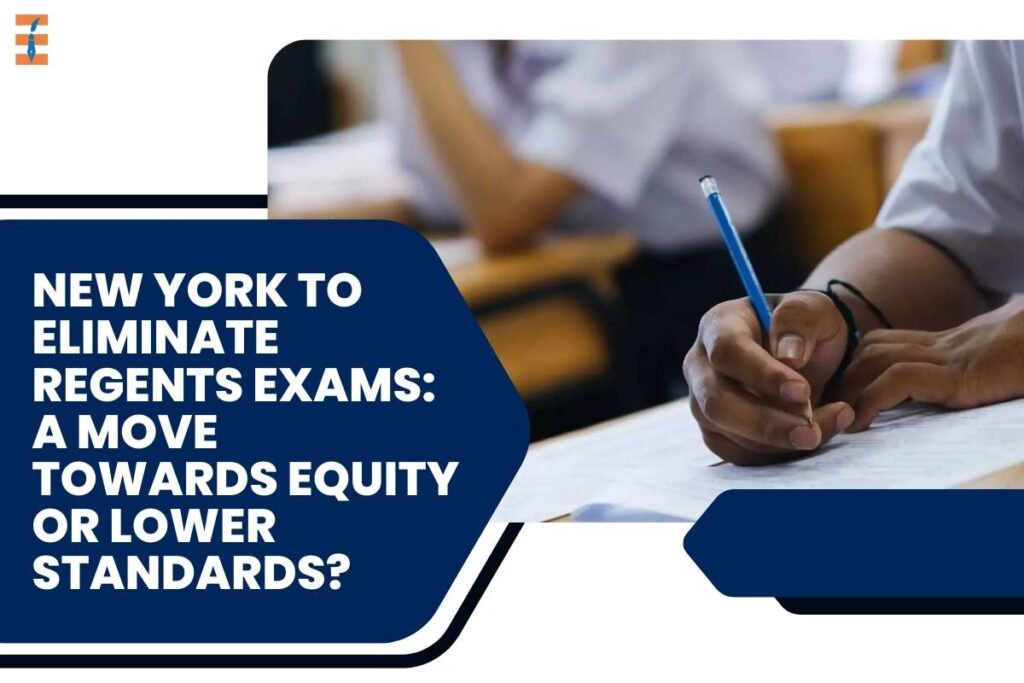Source-New York Post
New York State is preparing to make a significant change to its education system by eliminating the standardized Regents exams that have been a graduation requirement for over a century. The Regents exams, first introduced in 1866, have long been a hallmark of academic achievement for high school students, covering a broad range of subjects. New York is among the few states that have maintained such rigorous exam-based graduation standards. However, this historic shift is being justified in the name of “equity” by the New York State Education Department (SED) and Education Commissioner Betty Rosa.
A Move Towards Equity
Commissioner Rosa announced that the New York State diploma should symbolize equity for all students, emphasizing the department’s commitment to diversity, equity, and inclusion. This new approach is part of the “Culturally Responsive-Sustaining Education Framework,” designed to create true equity in the state’s public education system. Rosa and her team believe that this change will address long-standing disparities and foster a more inclusive environment.
However, critics argue that this move translates into lower standards and a lack of accountability. They claim that the focus on equity is being misused to justify diminishing academic expectations. The proposed replacement for the Regents exams is the “Portrait of a Graduate” metric, which assesses students on subjective qualities like cultural competence, social-emotional skills, and global citizenship, instead of standardized academic knowledge.
Controversy and Criticism
The decision to eliminate the Regents exams has sparked considerable debate. Many argue that the new criteria are vague and difficult to measure, potentially lowering the bar for student achievement. Critics, including pro-merit organizations like PLACE NYC, which advocates for merit-based admissions and stronger academic standards, feel excluded from the decision-making process. Despite winning significant representation in last year’s Community Education Council elections, PLACE NYC claims its members were not consulted.
Additionally, the timing of the parent-engagement process for presenting the new rules raises concerns. Scheduled from July to October, it coincides with a period when many public school parents are less active, as PTAs are not in operation for two of those months. This scheduling could limit meaningful parental input and feedback on the proposed changes.
The Broader Implications
The elimination of the Regents exams is seen by some as part of a broader “anti-racist” educational agenda, aimed at addressing systemic inequalities. However, there are fears that this approach could perpetuate the “bigotry of low expectations,” particularly for disadvantaged students. Critics argue that rather than raising standards and providing support, the state is lowering the bar, which could exacerbate educational disparities.
By making the Regents exams optional, the state risks widening the gap between students who excel and those who are left behind. Proponents of maintaining the exams believe that all students deserve the challenge and support of high expectations and that teachers should be equipped to prepare students for standardized tests. They argue that the Regents exams ensure that graduates have mastered essential academic subjects such as English, science, algebra, and social studies.
The proposed changes mark a pivotal moment for New York’s education system. While the move is intended to promote equity, it has ignited a heated debate about the best ways to achieve fairness and high standards in education. The future of New York’s high school graduation requirements remains uncertain, as the state navigates the complex balance between equity and excellence.
Also Read: Open Book Exams: The Pros And Cons Of Allowing Them

